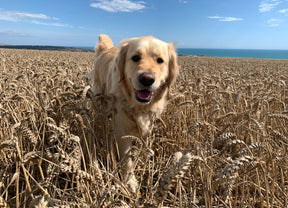
Guide Dogs UK: Using GutDiscovery® to improve the long-term health of working dogs.
In a ground-breaking new partnership, Guide Dogs UK has teamed up with BIOME9 to explore and optimise the gastrointestinal health of their puppies as they train to be guide dogs.
Read article



















